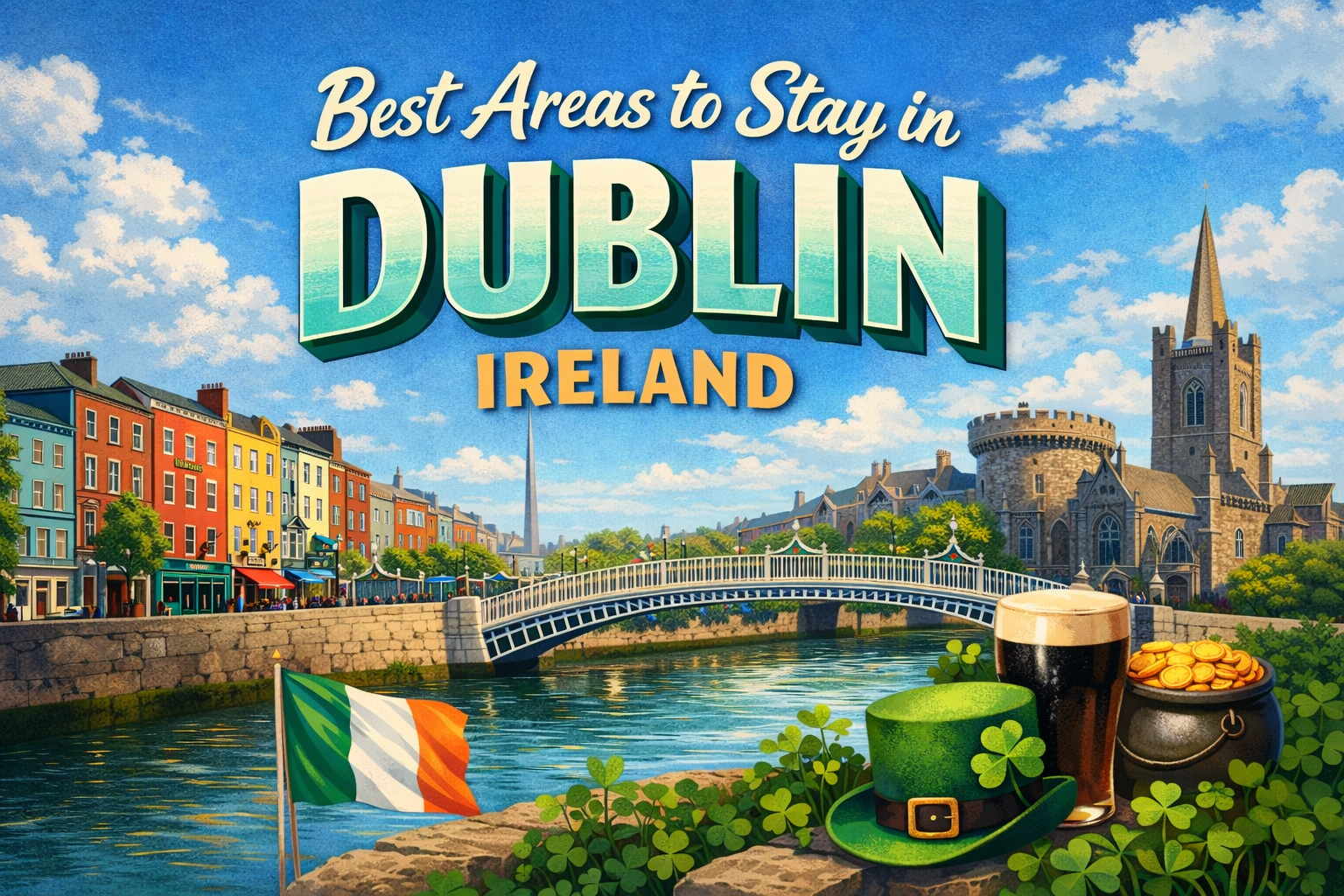What is Psychology?
Is psychology a science? Psychology for today is the scientific study of mind and behavior in British Psychological Society. Educational Psychology subject matter includes the behavior of humans and nonhumans, both conscious and unconscious phenomena, and mental processes such as thoughts, feelings, and motives. Psychology is an academic discipline of immense scope, crossing the boundaries between the natural and social sciences. Biological psychologists seek an understanding of the emergent properties of brains, linking the discipline to neuroscience while social psychologists aim to understand the behavior of individuals and groups.
Psychologists are involved in research on psychology meaning, perception, cognition, attention, emotion, intelligence, subjective experiences, motivation, brain functioning, and personality. Psychologists’ interests extend to interpersonal relationships, psychological resilience, family resilience, and other areas within social psychology. They also consider the unconscious mind.
Why study Psychology?
Psychology Degree allows you to understand the principles of what makes people think and behave in the way they do. Reliant on scientific methods, the statistics involved are tricky to understand but worth it in the long run. You’ll also be taught to think critically and gain a whole raft of skills useful for your future career.
Career-specific skills:
- The knowledge and practical skills to study the workings of the mind, such as running experiments with human participants
- A range of research methods, from qualitative to quantitative
Transferable skills:
- Communication
- Critical thinking
- Data handling and analysis
- IT literacy and numeracy
- Organisation and project management
- Presentation and report writing
- Problem-solving
- Teamwork
- Time management
Professional accreditation:
Degrees may be accredited by the British Psychological Society (BPS). This means graduates may be eligible to become a graduate member of the BPS on completion of the required elements of study and achieving the required grades.
Psychology Degree Courses
University of Cambridge
Psychological and Behavioural Sciences BA (Hons)
Qualification: Bachelor of Arts (with Honours) – BA (Hons)
Location: Queens’
Study mode: Full time
Start date: October 25
Duration: 3 Years
University of Oxford
Experimental Psychology MSci
Qualification: Master of Science – MSci
Location: Queen’s
Study mode: Full time
Start date: October 25
Duration: 4 Years
Psychology and Linguistics MSci
Qualification: Master of Science – MSci
Location: St Catherine’s
Study mode: Full time
Start date: October 25
Duration: 4 Years
Psychology and Philosophy MSci
Qualification: Master of Science – MSci
Location: Lady Margaret Hall
Study mode: Full time
Start date: October 25
Duration: 4 Years
University information
Durham University
Education Studies – Psychology BA (Hons)
Qualification: Bachelor of Arts (with Honours) – BA (Hons)
Location: Durham City
Study mode: Full time
Start date: October 25
Duration: 3 Years
Philosophy and Psychology BA (Hons)
Qualification: Bachelor of Arts (with Honours) – BA (Hons)
Location: Durham City
Study mode: Full time
Start date: October 25
Duration: 3 Years
Psychological and Behavioural Science BSc (Hons)
Qualification: Bachelor of Science (with Honours) – BSc (Hons)
Location: Durham City
Study mode: Full time
Start date: October 25
Duration: 3 Years
Psychological and Behavioural Science with Foundation BSc (Hons)
Qualification: Bachelor of Science (with Honours) – BSc (Hons)
Location: Durham City
Study mode: Full time
Start date: October 25
Duration: 4 Years
Psychology BSc (Hons)
Qualification: Bachelor of Science (with Honours) – BSc (Hons)
Location: Durham City
Study mode: Full time
Start date: October 25
Duration: 3 Years
University of Bath
Education with Psychology BA (Hons)
Qualification: Bachelor of Arts (with Honours) – BA (Hons)
Location: Main Site
Study mode: Full time
Start date: September 25
Duration: 3 Years
Education with Psychology with professional placement BA (Hons)
Qualification: Bachelor of Arts (with Honours) – BA (Hons)
Location: Main Site
Study mode: Sandwich / Placement
Start date: September 25
Duration: 4 Years
Psychology BSc (Hons)
Qualification: Bachelor of Science (with Honours) – BSc (Hons)
Location: Main Site
Study mode: Full time
Start date: September 25
Duration: 3 Years
Psychology with work placement BSc (Hons)
Qualification: Bachelor of Science (with Honours) – BSc (Hons)
Location: Main Site
Study mode: Sandwich / Placement
Start date: September 25
Duration: 4 Years
UCL (University College London)
Psychology BSc (Hons)
Qualification: Bachelor of Science (with Honours) – BSc (Hons)
Location: Main Site
Study mode: Full time
Start date: September 25
Duration: 3 Years
Psychology MSci (Hons)
Qualification: Master of Science (with Honours) – Msci (Hon)
Location: Main Site
Study mode: Full time
Start date: September 25
Duration: 4 Years
Psychology and Language Sciences BSc (Hons)
Qualification: Bachelor of Science (with Honours) – BSc (Hons)
Location: Main Site
Study mode: Full time
Start date: September 25
Duration: 3 Years
Psychology and Language Sciences MSci (Hons)
Qualification: Master of Science (with Honours) – Msci (Hon)
Location: Main Site
Study mode: Full time
Start date: September 25
Duration: 4 Years
Psychology with Education BSc (Hons)
Qualification: Bachelor of Science (with Honours) – BSc (Hons)
Location: Main Site
Study mode: Full time
Start date: September 25
Duration: 3 Years
University of Birmingham
Human Neuroscience BSc (Hons)
Qualification: Bachelor of Science (with Honours) – BSc (Hons)
Location: Main Site
Study mode: Full time
Start date: September 25
Duration: 3 Years
Psychology BSc (Hons)
Qualification: Bachelor of Science (with Honours) – BSc (Hons)
Location: Main Site
Study mode: Full time
Start date: September 25
Duration: 3 Years
Psychology and Psychological Practice MSci (Hons)
Qualification: Master of Science (with Honours) – Msci (Hon)
Location: Main Site
Study mode: Full time
Start date: September 25
Duration: 4 Years
Psychology and Religion BA (Hons)
Qualification: Bachelor of Arts (with Honours) – BA (Hons)
Location: Main Site
Study mode: Full time
Start date: September 25
Duration: 3 Years
The University of Edinburgh
Cognitive Science (Humanities) MA (Hons)
Qualification: Master of Arts (with Honours) – MA (Hons)
Location: Central area campus
Study mode: Full time
Start date: September 25
Duration: 4 Years
Cognitive Science BSc (Hons)
Qualification: Bachelor of Science (with Honours) – BSc (Hons)
Location: Central area campus
Study mode: Full time
Start date: September 25
Duration: 4 Years
Philosophy and Psychology MA (Hons)
Qualification: Master of Arts (with Honours) – MA (Hons)
Location: Central area campus
Study mode: Full time
Start date: September 25
Duration: 4 Years
Psychology BSc (Hons)
Qualification: Bachelor of Science (with Honours) – BSc (Hons)
Location: Central area campus
Study mode: Full time
Start date: September 25
Duration: 4 Years
Psychology and Business MA (Hons)
Qualification: Master of Arts (with Honours) – MA (Hons)
Location: Central area campus
Study mode: Full time
Start date: September 25
Duration: 4 Years
University of Bristol
Psychology BSc (Hons)
Qualification: Bachelor of Science (with Honours) – BSc (Hons)
Location: Main Site
Study mode: Full time
Start date: September 25
Duration: 3 Years
Psychology and Neuroscience MSci
Qualification: Master of Science – MSci
Location: Main Site
Study mode: Full time
Start date: September 25
Duration: 4 Years
Psychology in Education BSc (Hons)
Qualification: Bachelor of Science (with Honours) – BSc (Hons)
Location: Main Site
Study mode: Full time
Start date: September 25
Duration: 3 Years
Psychology in Education with Study Abroad BSc (Hons)
Qualification: Bachelor of Science (with Honours) – BSc (Hons)
Location: Main Site
Study mode: Full time
Start date: September 25
Duration: 4 Years
Psychology with Innovation MSci (Hons)
Qualification: Master of Science – MSci
Location: Main Site
Study mode: Full time
Start date: September 25
Duration: 4 Years
University of York
Psychology BSc (Hons)
Qualification: Bachelor of Science (with Honours) – BSc (Hons)
Location: Main Site
Study mode: Full time
Start date: October 25
Duration: 3 Years
Psychology in Education BSc (Hons)
Qualification: Bachelor of Science (with Honours) – BSc (Hons)
Location: Main Site
Study mode: Full time
Start date: October 25
Duration: 3 Years
Psychology integrated Masters MSci
Qualification: Master of Science – MSci
Location: Main Site
Study mode: Full time
Start date: October 25
Duration: 4 Years
Sociology with Social Psychology BA (Hons)
Qualification: Bachelor of Arts (with Honours) – BA (Hons)
Location: Main Site
Study mode: Full time
Start date: October 25
Duration: 3 Years
University of Liverpool
Psychological Sciences MPsycholSc
Qualification: Master of Psychological Science – MPsycholSc
Location: Main Site
Study mode: Full time
Start date: September 25
Duration: 4 Years
Psychology (2+2 programme with Foundation Element) BSc (Hons)
Qualification: Bachelor of Science (with Honours) – BSc (Hons)
Location: Main Site
Study mode: Full time
Start date: September 25
Duration: 4 Years
Psychology BSc (Hons)
Qualification: Bachelor of Science (with Honours) – BSc (Hons)
Location: Main Site
Study mode: Full time
Start date: September 25
Duration: 3 Years
University of Manchester
Cognitive Neuroscience and Psychology BSc (Hons)
Qualification: Bachelor of Science (with Honours) – BSc (Hons)
Location: Main Site
Study mode: Full time
Start date: September 25
Duration: 3 Years
Educational Psychology BSc (Hons)
Qualification: Bachelor of Science (with Honours) – BSc (Hons)
Location: Main Site
Study mode: Full time
Start date: September 25
Duration: 3 Years
Psychology BSc (Hons)
Qualification: Bachelor of Science (with Honours) – BSc (Hons)
Location: Main Site
Study mode: Full time
Start date: September 25
Duration: 3 Years
Psychology Degree Entry Requirements
Typical entry requirements for a Psychology degree and masters in Psychology at university are between 104–156 UCAS points. This could include the qualifications and range of grades as follows:
- A Levels: A*A*A*–BCC
- BTECs: DDD–MMM
- Scottish Highers: AAAAA–CCCCC (Advanced Highers: AAA)
- International Baccalaureate: 42–30
| Type | Minimum Grades/Points Required (with Foundation Year) | Minimum Grades/Points Required | Maximum Grades/Points Required | Average Grades/Points Required |
|---|---|---|---|---|
| UCAS Points | 32 | 96 | 136 | 120 |
| A-levels | EE | CCC | AAB | BBB |
| BTEC Level 3 National Extended Diploma | PP | MMM | DDM-DDD | DMM |
| International Baccalaureate | 20 | 27 | 37 | 32 |
Other good subjects to have studied include:
- Biology, chemistry, mathematics, physics or psychology
- Combined subjects may have their own requirements, e.g. A Level/Higher maths if studying computing science with psychology
- General subjects may be excluded
Experience that would look good on your application:
- Assistant Psychology jobs experience or shadowing an occupation that may be relevant to your future career, such as in a school, university department (for research), care sector or business
- Independent reading into the subject, or areas of research at your chosen university
- Online content, such as relevant MOOCS or courses, or the BPS website (British Psychological Society)
- Summer schools, if available – check out the Sutton Trust or UNIQ
Other requirements for this subject include:
Interview and entry assessments may be required by some universities
Top Universities for Psychology UK
Here are some best universities for Psychology in which you can apply for Psychology degrees and Psychology masters. These schools of Psychology will provide you masters with Psychology degree and Psychology degree jobs.
| 2024 | University | Satisfaction | Reflections | Outcomes | Research Quality |
|---|---|---|---|---|---|
| 1st | University of Roehampton | 3.88 / 5 | 82 / 100 | 82 / 100 | 10.28 |
| 2nd | University of Bath | 4.12 / 5 | 86 / 100 | 88 / 100 | 4.93 |
| 3rd | University of Reading | 4.17 / 5 | 87 / 100 | 88 / 100 | 7.39 |
| 4th | University of Brighton | 3.92 / 5 | 86 / 100 | 90 / 100 | — |
| 5th | UCL, University of London | 4.12 / 5 | 87 / 100 | 88 / 100 | 0.94 |
| 6th | Sheffield Hallam University | 4.19 / 5 | 87 / 100 | 83 / 100 | 15 |
| 7th | Coventry University | 3.90 / 5 | 83 / 100 | 82 / 100 | 30.59 |
| 8th | Bristol, University of the West of England (UWE) | 4.04 / 5 | 83 / 100 | 88 / 100 | — |
| 9th | Bangor University | 3.99 / 5 | 84 / 100 | 90 / 100 | 11.02 |
| 10th | University of Portsmouth | 4.13 / 5 | 84 / 100 | 85 / 100 | 6.53 |
| 11th | University of Greenwich | 4.01 / 5 | 84 / 100 | 81 / 100 | — |
| 12th | Anglia Ruskin University ARU | 4.20 / 5 | 86 / 100 | 82 / 100 | 9.31 |
| 13th | University of Sheffield | 4.32 / 5 | 86 / 100 | 88 / 100 | 10.45 |
| 14th | University of Southampton | 4.07 / 5 | 85 / 100 | 87 / 100 | 7.34 |
| 15th | Aston University | 4.19 / 5 | 87 / 100 | 89 / 100 | — |
| 16th | Newcastle University | 4.17 / 5 | 85 / 100 | 78 / 100 | 5.16 |
| 17th | University of Gloucestershire | 3.90 / 5 | 84 / 100 | 92 / 100 | 12.92 |
| 18th | Swansea University | 4.26 / 5 | 85 / 100 | 86 / 100 | 10.94 |
| 19th | University of South Wales | 3.69 / 5 | 86 / 100 | 85 / 100 | — |
| 20th | The University of Cumbria | 3.78 / 5 | 88 / 100 | 100 / 100 | — |
Psychology Graduate Jobs

What can you do with a Psychology Degree? A Psychology degree could lead to a variety of Psychology work opportunities from healthcare to business or marketing. Roles could include:
- Counselling psychologist
- Digital analyst
- Drug and alcohol recovery practitioner
- Educational psychologist
- Forensic psychologist
- High-intensity therapist
- Mental health support worker
- Occupational psychologist
- Psychological wellbeing practitioner
- Sports psychologist
Psychology Degree Graduates Earning
Psychology graduates can expect an entry-level salary of £17,680–£23,000.
A clinical psychologist working within the NHS may earn from £32,500 while training, up to £90,000 as an experienced consultant psychologist. Another route might be to work with offenders; a senior counselling psychologist can earn £42,500–£51,000 working for HM Prison Service.
Psychology Degree Clearing 2024
Psychology Degree Clearing 2024 is how universities fill empty spots on their Psychology Degree courses. Most of the time, this is through finding students who have decided to go to university after the application deadline, or students who’ve not got the results they needed to get into their first choice Psychology Degree course and are looking for alternative Psychology Degree courses or universities. Psychology Degree Clearing is a fantastic opportunity for all students, whether you’re exploring new options, are worried about achieving the grades you were hoping for or are considering a change in direction. Here are some tips on how to prepare for Psychology Degree Clearing 2024.
- Do your research
To take the stress out of Psychology Degree Clearing, start researching universities and courses before you receive your results.
- Have your details ready
Before you call, please make sure you have the following information to hand, exam results, including level two and three GCSE and A-Levels/BTEC, UCAS ID (if you have one).
- Be persistent
Psychology Degree Clearing line can also be very busy, so if you can’t get through first time or the line is engaged, don’t be put off.
- Keep an open mind
You probably have your heart set on a particular Psychology course, but you are more likely to be successful in finding a place in Psychology degree Clearing if you are flexible and consider similar courses to the one you originally applied for.
How to compare Psychology Degree courses? Here are some factors to consider when comparing psychology courses.
- Module choices
Not all Psychology Degree courses are created equal. Module choices can vary wildly between Psychology Degree courses so make sure to check that the modules on offer interest you and fit in with the career path you want to take.
- Course accreditation
One important factor to consider when comparing Psychology Degree courses is whether they are accredited by the British Psychological Society (BPS) and provide you with Graduate Basis for Chartered Membership (GBC) upon completion of the course.
- Placement year opportunities
Some Psychology Degree courses offer a professional placement year as part of their course, where you can gain experience working in a real-life clinical setting.
Conclusion
Psychology Degree is a fascinating journey into understanding and decoding the human mind, offering valuable insights into behaviour, emotions, and the science behind why we do what we do. Studying psychology opens doors to many different career opportunities. From clinical psychologists providing therapeutic support, to industrial-organizational psychologists shaping workplace dynamics, this subject offers the chance for understanding and improving all kinds of aspects of human life.
After you have been admitted into universities of Psychology degree, student accommodation in the initial thing. uhomes.com will provide you with affordable, comfortable and reliable resources of student accommodation.
FAQ
Yes, of course. A degree in psychology provides a useful foundation for a range of careers and employers. Major employers of Psychology Degree graduates include: careers and counselling services. commercial and industrial companies.
In most cases, becoming a psychologist takes somewhere between eight and 12 years of schooling. However, when considering a career in psychology, this timeframe is not always cut-and-dry. The amount of time it takes to complete your college education depends largely on your specialty area and career interests.
To become a psychologist, you’ll need to:
- Study a psychology degree accredited by the British Psychological Society (BPS) or do a psychology conversion course.
- Gain Graduate Basis for Chartered Membership.
Complete an accredited postgraduate qualification in your chosen specialism to practice as a psychologist.
Some psychologists work alone, with patients and clients coming to the psychologist’s office. Others are involved in health care teams and typically work in hospitals, medical schools, outpatient clinics, nursing homes, pain clinics, rehabilitation facilities, and community health and mental health centers.
Earning a Psychology Degree can be challenging, but it is also highly manageable. The difficulty increases with higher degrees, such as master’s or doctoral programs, which involve more in-depth research and specialized knowledge.
There has been a national shortage of trained Educational Psychologists since 2020 with an increase in EHCP requests and the need for children and young people with SEND to have a support system in place to increase their potential.
In order to qualify as a clinical psychologist you will need to complete a degree accredited by British Psychological Society (BPS).
5 Hardest Courses in Psychology:
- Advanced Statistical Methods: The Mathematical Backbone of Psychology.
- Neuropsychology: The Brain’s Intricacies Unveiled.
- Developmental Psychology: Spanning the Human Lifespan.
- Psychopathology: The Study of Mental Disorders.
- Cognitive Psychology: Delving into Mental Processes.
A common misconception about introversion is automatically equating it to shyness or being antisocial. In reality, your values align with quality friendships over quantity. This works fantastically with the career of a psychologist or clinical counselor.
Psychologists can perform academic research and work in labs, other psychotherapists mainly provide talk therapy to clients. A psychotherapist is more likely than a clinical psychologist to perform talk therapy. Clinical psychologists can perform assessments and make complex diagnoses.
According to HESA’s most recent Graduate Outcomes data, 77% of UK domiciled, first degree psychology graduates were in full (63%) or part-time (14%) employment 15 months after graduation, with a further 18% reporting that they were working alongside their studies.








